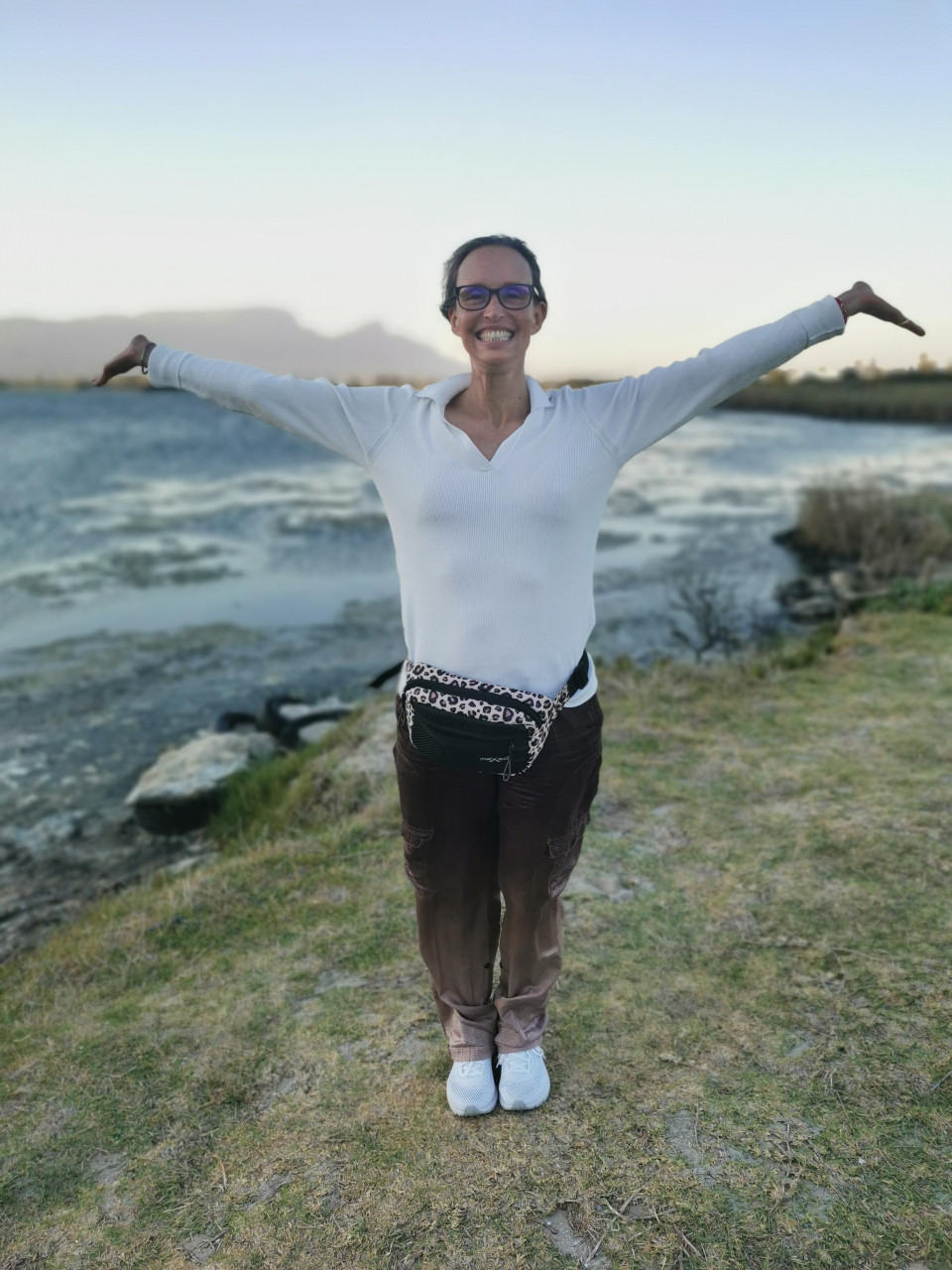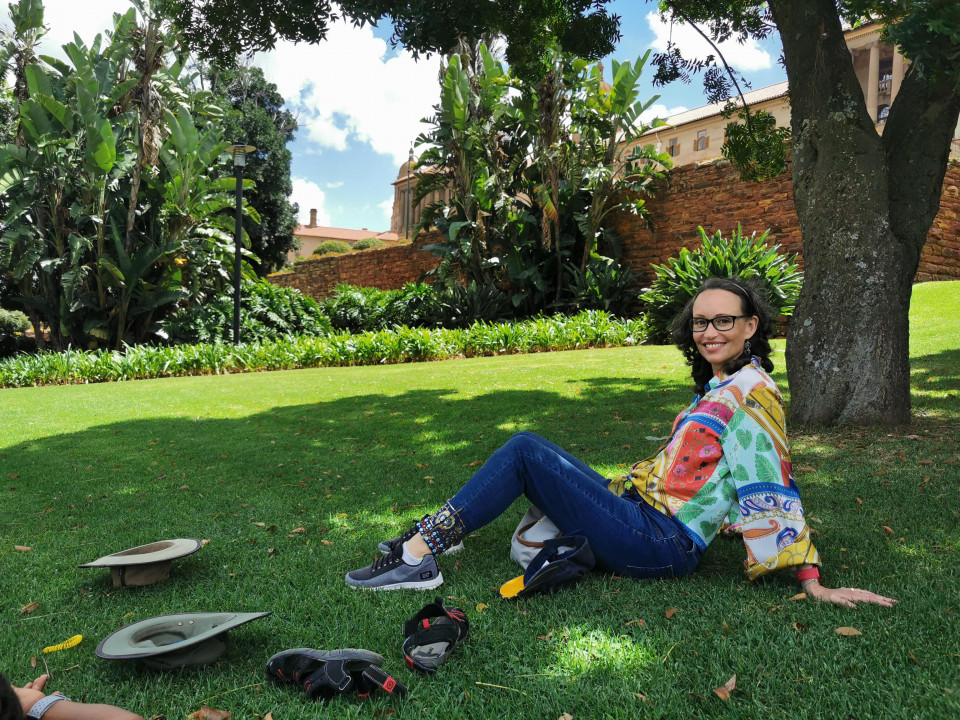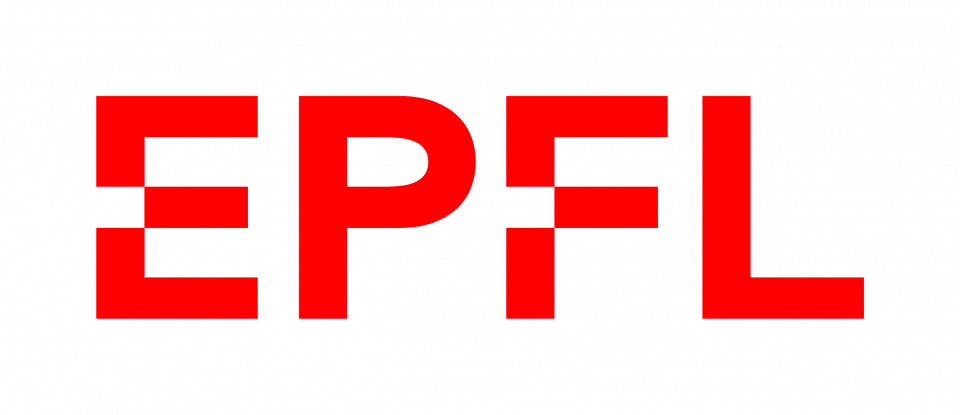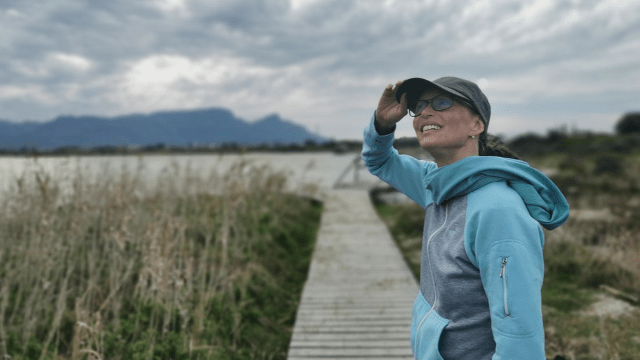IN MEMORIAM. This interview was conducted in October 2022. One month later, we were saddened to learn that Dr Ödman lost her battle against cancer, an illness that – as you will read – didn’t prevent her from loving her life and sharing her passion. Together with her family, we decided to go ahead and publish the interview in Dimensions as a tribute to an alumna who has taken her place among the stars she so loved to gaze at.
---
Carolina Ödman completed her physics degree at EPFL in 2000. After dreaming of studying philosophy as a child, Ödman went on to become a leading figure in astrophysics with several prestigious awards to her name. She’s also been involved in a number of science outreach initiatives throughout her highly international career.
Why did you decide to attend EPFL?
It’s funny because, initially, I didn’t plan on becoming a scientist at all! There weren’t any in my family and I didn’t have any role models like that growing up. As a child I wanted to become a thinker and had planned to get a degree in philosophy. But in my senior year of high school, I had a physics teacher who was able to explain E=mc2in a way that was perfectly clear. Suddenly science no longer seemed intimidating and felt like something I could grasp. I also remember taking a fascinating tour of CERN with my mother. Once I decided to go into a technical field EPFL was the obvious choice, since I grew up in Vaud.
What memories do you have of your time here?
It wasn’t always easy. I sometimes felt lonely in the early years, especially as I was one of the few women in a male-dominated field. Things at home were difficult too, which made it hard for me to concentrate. I soon decided to move out, but that meant taking on a number of odd jobs and applying for scholarships so I could pay for a room at the Ochettes dorm on the University of Lausanne campus. Because of all that I ended up having to repeat my first and second years.
But the majority of my EPFL memories are good ones, especially of the people I met. This includes the professors who gave me a second chance when I was struggling at the beginning. But, more importantly, the friends I made – I’m still close to many of them today. Especially the ones I lived with in the dorm, supporting each other through all-nighters to study for exams!

How did you become interested in astrophysics?
Even though I had decided to pursue a career in science, I was still a thinker at heart and wanted to keep that big-picture perspective. Astronomy fit in well with that. I took several astronomy-related classes in my third year at EPFL, like physical statistics and introduction to astronomy and astrophysics. Then I completed my Master’s thesis in cosmology.
After graduating from EPFL, I went to Cambridge for my PhD. That was possible thanks to funding I received from EPFL Alumni’s Acube Foundation and from the Leenaards Foundation. Cambridge really felt like the place to be for astrophysics at the time, especially with such an iconic figure like Stephen Hawking on campus. Shortly before I graduated in 2003, I met Neil Turok, the founder of the African Institute for Mathematical Sciences (AIMS). He had just created AIMS to promote careers in science and engineering in Africa and to spot and train high-potential students. I told him I was interested in what he was doing, and he invited me to come teach astrophysics at AIMS in Cape Town and help him set things up. That was in early 2004. It turned out to be an excellent foray into science outreach, as I got to work with students who were enthusiastic, driven and eager to learn. Many of them became university professors shortly after completing the AIMS program – showing just how important this kind of program is.
Much of your career has been devoted to science outreach and promoting careers in science, and you won an award for your efforts from Science magazine.
Yes, it’s an important issue for me. After teaching in South Africa, I worked as a postdoc in theoretical cosmology at Sapienza University of Rome. I was there under the Marie Curie Intra-European Fellowship program. But this experience made me realize I didn’t want to stay in academia. The highly competitive climate wasn’t for me.
In 2005, I heard about the Universe Awareness program being set up at Leiden University in the Netherlands. I was drawn to it right away – its name spoke to me, given my background in cosmology, and I found the idea of the infinite very inspiring. Children are often fascinated by space and the universe when they’re young, but that can start to fade once they turn 10. With Universe Awareness, the goal is to keep children’s curiosity alive, teach them about astronomy, encourage them to ask questions and stoke their interest in science more generally.
The program expanded rapidly and was chosen as one of the headline initiatives in UNESCO’s International Year of Astronomy in 2009. At that point Universe Awareness had over 350 volunteers and operated in more than 40 countries. My work on that program and its broad reach led to me winning the Science Prize for Online Resources in Education from Science magazine.
You’ve had a very international career, from the UK to Italy, the Netherlands and now South Africa. What made you decide to settle there?
I fell in love with South Africa the first time I came here, for AIMS in 2004. I still remember waking up that first morning and opening my window – the incredible view of waves on the beach and the smell of sand and fresh sea air. I’d always thought I’d like to go back. I met my future husband, who’s from South Africa, while I was working for Universe Awareness. We decided that I’d join him in South Africa in late 2009.
I’m delighted to be living in this country, but some aspects can feel strange. For instance, my family and I are lucky to have an exceptional quality of life, but poverty is literally right on our doorstep. We try to play an active role in our community, particularly in Sutherland where we spend a lot of time since that’s where the South African Astronomical Observatory is located. We donate equipment, and we also encourage people to talk so that the country’s history is kept alive, since it’s so easy to forget.
The first two precursor telescopes developed under the SKA are now operational, and the one in South Africa – the MeerKAT – has already generated amazing images with remarkable precision. It paves the way to important discoveries much further away from Earth.
You also took part in the Square Kilometre Array (SKA) project to build the world’s largest radio telescope – a project that EPFL has been involved in since 2020. Why do you believe it’s important to conduct this kind of large-scale research?
The SKA is an extraordinary project due to both its scope and ambition. It’s being hosted at sites in South Africa and Australia and aims to identify emerging planetary systems as well as planets right when they’re formed by spotting hydrogen gas as soon as it’s in a detectable state. Who knows, maybe one day the SKA will pick up signs of life on other planets. I love basic research, but what really motivates me is seeing the impact of science on society. My work with the SKA, which began in 2010, is right along those lines. We held a number of hack days, for example, that raised awareness about our project and gave participants an opportunity to develop programming skills they could subsequently use on the job.
The first two precursor telescopes developed under the SKA are now operational, and the one in South Africa – the MeerKAT – has already generated amazing images with remarkable precision. It paves the way to important discoveries much further away from Earth. In April of this year, the MeerKAT observed the most distant megamaser ever detected. I’m really excited about the new horizons that technology is opening up for research, and that’s exactly what’s going on with the SKA.
In many fields, data collected in Africa are used by western scientists, with African scientists not given access to them.
What’s the current state of scientific research in Africa?
Scientific research is expanding on the continent at an exponential rate. But in many fields, data collected in Africa are used by western scientists, with African scientists not given access to them. Sometimes, even medical treatments developed using data from Africa aren’t made available to the African people. That was the case with some studies on malaria, for example, and with studies done by pharmaceutical companies on genetic diversity – a kind of diversity that’s prevalent in Africa. The good news is people are becoming aware of this injustice and want to take back control. But we’ve still got a long way to go.
You were diagnosed with pancreatic cancer in early 2018. How has that been for you?
When that kind of diagnosis hits you, your priority shifts to just being yourself, more than ever before. I’m lucky to have an amazing family with two great children aged 8 and 10. That helps me focus on what really matters and not get upset over things that aren’t worth it. I recently completed a long hospital stay and am spending some time at home to recuperate. Even a small infection could be very dangerous, so I’m constantly on the lookout for potential pathogens. So far, I’ve been able to confound the doctors’ prognosis.
Shortly after I was diagnosed, my work with a fintech startup that serves the enterprise market – something I’d been involved in since 2012 and which was a great learning experience – came to an abrupt end. It was a really difficult time for me.
But a few months later I took a position with the Inter-University Institute for Data Intensive Astronomy at the University of the Western Cape. The institute develops systems for applying big data methods to astronomy. My role is to run development and outreach programs and promote the Institute’s work by making it engaging and easy to grasp. I take high-tech research topics, like in the area of machine learning, and create digital teaching materials for students who are studying those fields. The outputs can be tutorials or hacking competitions, for example. The goal is to broaden their outlook as they embark on their careers as scientists.
My position at the Institute gives me the flexibility I need to keep working while continuing my cancer treatment. My colleagues have been really understanding. And being able to work remotely following the pandemic has been a big help.
During your university years you were active in promoting gender equality, and you contributed to a book in the late 1990s about women engineers at EPFL.
That was actually something I kind of fell into. One of my jobs to pay for school was as the assistant to EPFL’s equal opportunity officer. The department had just one person back then. We carried out a survey of EPFL women graduates to assess their level of satisfaction with their careers and their working conditions. The results were pretty shocking. We also published a book with portraits of women who attended our School, and I was one of the ones selected.
Even though I have a lot of wonderful memories from EPFL, it’s true that it was a tough place for women at the time. Part of why my first year was so difficult was because there were so few other females in my classes. Sometimes it felt like men thought of me as a piece of meat, and just wearing a skirt led to numerous comments. I was involved in several student associations like the Forum and AGEPoly, but their leadership committees were still fairly macho and it was hard for women to obtain positions of responsibility. I’ve seen that EPFL has rolled out a number of initiatives recently to condemn harassment and promote gender equality, and I think that’s great.
The challenges I’ve faced in my career made me realize that EPFL is where I was able to develop key problem-solving skills.
Did you experience sexist behavior later on in your career as an astrophysicist?
Yes, that kind of behavior, especially the sexist remarks, cropped up throughout my career. Once when I was working on a project at Lausanne University Hospital in 2000, a doctor said it was a shame I’d spent so many years studying since I would ultimately end up staying home and cooking dinner. And there was the fact that my maternity leave was used against me when I left AIMS.
Since 2016 you’ve been president of the South African chapter of EPFL’s alumni club. Why is it important to you to keep this link with the School?
The challenges I’ve faced in my career made me realize that EPFL is where I was able to develop key problem-solving skills. I’m really grateful for that and want to give something back through the alumni network. I can’t be as active as I’d like because of the cancer, but EPFL Alumni is a way for me to boost EPFL’s visibility in South Africa and encourage bright young students to apply, since it’s a fantastic place to go to school.
People often describe you as a cheery person with a positive outlook. Where do you think that comes from?
It’s true, I hear that a lot! I think it comes simply from the fact that I’m happy. I love my life.

BIO
1974 Born in the canton of Vaud
2000 Obtains a physics degree from EPFL
2003 Obtains a PhD from Cambridge
2005 Joins the Universe Awareness program at Leiden University in the Netherlands
2010 Moves to South Africa and takes a position as a Square Kilometre Array (SKA) Research Fellow
2018 Joins the Inter-University Institute for Data Intensive Astronomy at University of the Western Cape in South Africa

Comments0
Please log in to see or add a comment
Suggested Articles



